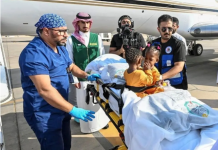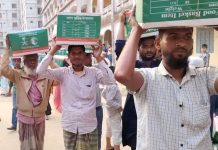KABUL – The King Salman Humanitarian Aid and Relief Center (KSrelief) has officially launched its Food Security and Emergency Support Project in Afghanistan for the 2025–2026 period, reinforcing the Kingdom of Saudi Arabia’s steadfast commitment to global humanitarian assistance and development.
As part of this vital initiative, 5,000 food baskets have been allocated specifically for Afghan returnees from Iran, addressing the urgent needs of displaced and vulnerable populations who continue to face severe economic and food security challenges.
The project aims to provide essential food supplies, enhance resilience among affected communities, and alleviate the suffering of thousands of families who have recently resettled in Afghanistan under dire conditions.
A Pillar of Saudi Arabia’s Global Humanitarian Vision
This initiative is the latest in a series of targeted relief efforts spearheaded by KSrelief, the humanitarian arm of the Kingdom of Saudi Arabia, and reflects the Kingdom’s deep commitment to supporting those in need across the world, regardless of religion, ethnicity, or geography.
In a statement, KSrelief emphasized that the project forms an integral part of Saudi Arabia’s comprehensive strategy to combat hunger and promote food security in crisis-affected regions.
“Through this program, we aim not only to meet the immediate food needs of returnees but also to support long-term recovery and stability for the Afghan people,” a KSrelief spokesperson stated. “This effort symbolizes our continued solidarity with Afghanistan during this challenging period.”
Sustained Humanitarian Impact
KSrelief has consistently been at the forefront of humanitarian aid efforts across Asia, Africa, and the Middle East. From healthcare and shelter to food distribution and educational support, the organization plays a pioneering role in international relief work, acting swiftly in times of emergency and focusing on sustainable development goals.
The Afghanistan Food Security and Emergency Support Project is expected to benefit tens of thousands of individuals, helping to reduce hunger, restore dignity, and build pathways to stability and self-reliance for vulnerable communities.
BY: The Times Union








